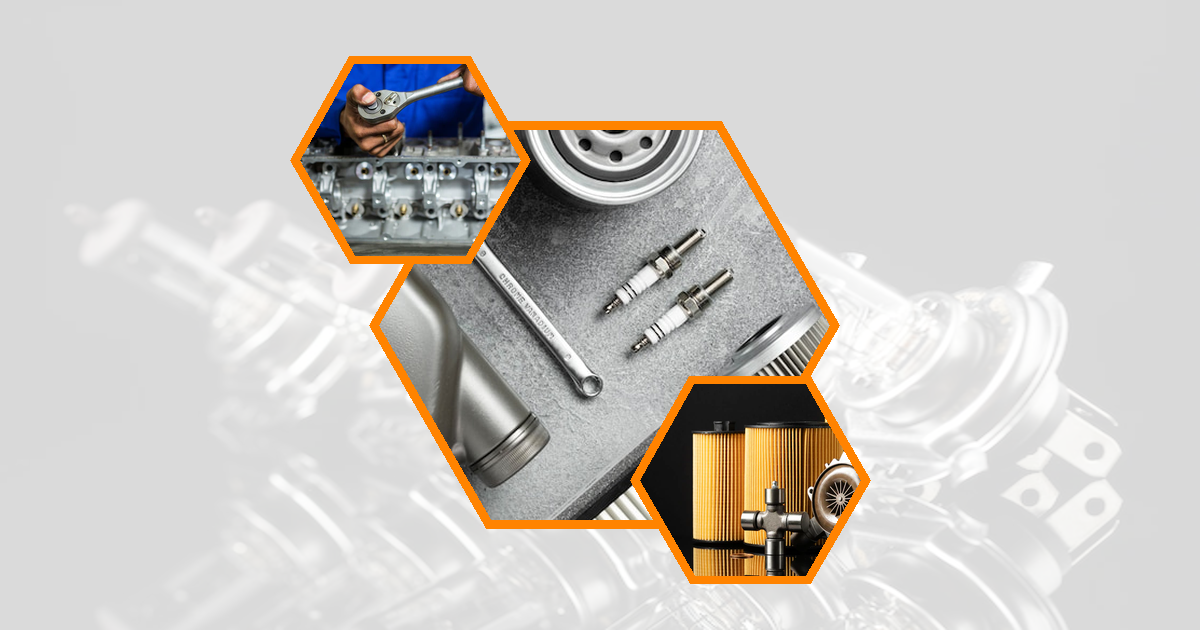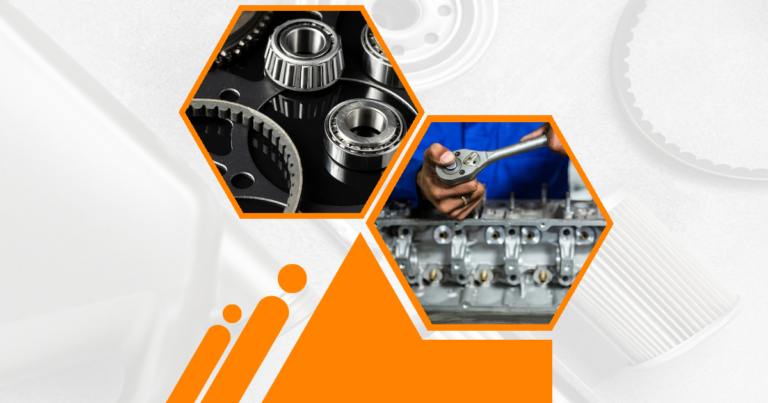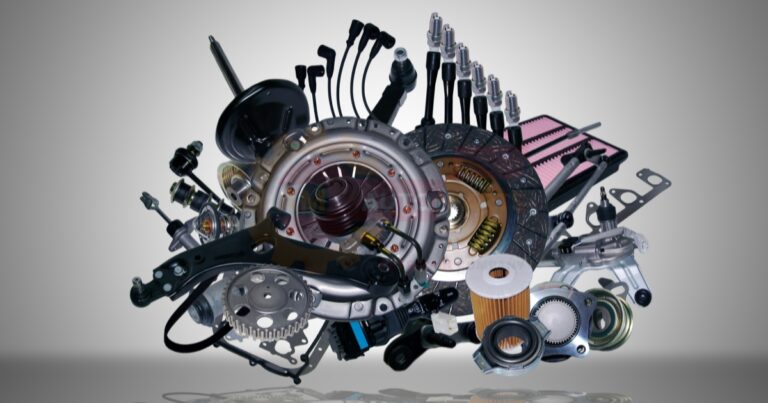The Rising Importance of Sustainability in Automotive Aftermarket
The automotive aftermarket is increasingly recognizing the importance of sustainable practices. As the global automotive aftermarket size was valued at USD 390.10 billion in 2020, with expectations to grow at a CAGR of 3.8% from 2021 to 2028, the need for eco-friendly solutions is more pressing than ever. This growth presents an opportunity for the industry to adopt green initiatives that reduce environmental impact while meeting consumer demands for sustainable products.
Current Environmental Challenges
The auto parts industry faces significant environmental challenges, including pollution and resource depletion. Manufacturing processes often involve harmful emissions and waste, contributing to environmental degradation. Addressing these challenges requires a shift towards sustainable practices that minimize negative impacts on the planet.
Regulatory Pressures and Consumer Demands
Regulatory bodies worldwide are imposing stricter environmental standards on the auto parts industry. These regulations aim to reduce carbon emissions and promote the use of sustainable materials. Simultaneously, consumers are becoming more environmentally conscious, demanding products that align with their values. This dual pressure is driving the industry to innovate and adopt green initiatives.
Economic Benefits of Green Practices
Implementing sustainable practices can lead to significant economic benefits for the auto parts industry. By reducing energy consumption and waste, companies can lower operational costs and improve profitability. Additionally, eco-friendly practices can enhance brand reputation and attract environmentally conscious consumers, further boosting sales.
- Reduced energy consumption can lower manufacturing costs.
- Sustainable practices can enhance brand reputation.
- Eco-friendly products can attract new customer segments.
Eco-Friendly Materials and Manufacturing Processes
The shift towards eco-friendly materials and manufacturing processes is crucial for reducing the environmental impact of the auto parts industry. By adopting sustainable materials and energy-efficient production techniques, companies can significantly decrease their carbon footprint.
Recycled and Biodegradable Materials
Using recycled and biodegradable materials in auto parts manufacturing is a key sustainable practice. These materials help reduce waste and conserve natural resources, contributing to a circular economy. By incorporating recycled materials, companies can minimize their environmental impact while maintaining product quality.
Energy-Efficient Production Techniques
Energy-efficient production techniques are essential for reducing the carbon footprint of the auto parts industry. By optimizing manufacturing processes, companies can lower energy consumption and emissions. This not only benefits the environment but also reduces operational costs, making it a win-win solution.
Waste Reduction Strategies
Implementing waste reduction strategies is vital for minimizing the environmental impact of auto parts manufacturing. By adopting practices such as lean manufacturing and recycling, companies can significantly reduce waste and improve resource efficiency. These strategies contribute to a more sustainable and environmentally friendly industry.
- Use of recycled materials reduces waste.
- Energy-efficient techniques lower emissions.
- Waste reduction strategies improve resource efficiency.
Green Supply Chain Management in Auto Parts
Green supply chain management is a critical component of sustainable practices in the auto parts industry. By optimizing logistics and transportation, companies can reduce their environmental impact and improve efficiency.
Sustainable Sourcing and Procurement
Sustainable sourcing and procurement involve selecting suppliers that adhere to environmental standards. By partnering with eco-friendly suppliers, companies can ensure that their products are made from sustainable materials and produced using environmentally friendly processes.
Optimizing Logistics and Transportation
Optimizing logistics and transportation is essential for reducing the carbon footprint of the auto parts industry. By implementing efficient transportation strategies, companies can minimize emissions and improve delivery times. This not only benefits the environment but also enhances customer satisfaction.
Collaborative Distribution Networks
Collaborative distribution networks involve working with other companies to optimize supply chain operations. By sharing resources and information, companies can reduce waste and improve efficiency. This collaborative approach contributes to a more sustainable and environmentally friendly industry.
- Sustainable sourcing ensures eco-friendly materials.
- Optimized logistics reduce emissions.
- Collaborative networks improve supply chain efficiency.
Recycling and Circular Economy Initiatives
Recycling and circular economy initiatives are crucial for reducing the environmental impact of the auto parts industry. By promoting the reuse and recycling of materials, companies can minimize waste and conserve resources.
End-of-Life Vehicle Recycling Programs
End-of-life vehicle recycling programs aim to recover valuable materials from old vehicles. By recycling components such as metals and plastics, companies can reduce waste and conserve natural resources. These programs contribute to a circular economy and promote sustainability in the auto parts industry.
Remanufacturing and Refurbishing Parts
Remanufacturing and refurbishing parts involve restoring used components to like-new condition. This process reduces waste and conserves resources by extending the lifespan of auto parts. By offering remanufactured products, companies can provide cost-effective and sustainable solutions to consumers.
Innovative Recycling Technologies
Innovative recycling technologies are essential for improving the efficiency and effectiveness of recycling processes. By adopting advanced technologies, companies can recover more materials and reduce waste. These innovations contribute to a more sustainable and environmentally friendly auto parts industry.
- Vehicle recycling programs recover valuable materials.
- Remanufacturing extends the lifespan of parts.
- Advanced technologies improve recycling efficiency.
Environmental Certifications and Standards for Auto Parts
Environmental certifications and standards play a crucial role in promoting sustainable practices in the auto parts industry. By adhering to these standards, companies can demonstrate their commitment to environmental responsibility.
ISO 14001 Environmental Management System
The ISO 14001 Environmental Management System provides a framework for managing environmental responsibilities. By implementing this system, companies can improve their environmental performance and reduce their impact on the planet. This certification is recognized globally and demonstrates a commitment to sustainability.
Automotive Industry Action Group (AIAG) Guidelines
The Automotive Industry Action Group (AIAG) provides guidelines for sustainable practices in the auto parts industry. By following these guidelines, companies can ensure that their operations align with environmental standards and contribute to a more sustainable industry.
Carbon Footprint Reduction Targets
Setting carbon footprint reduction targets is essential for minimizing the environmental impact of the auto parts industry. By establishing clear goals, companies can track their progress and implement strategies to reduce emissions. This proactive approach contributes to a more sustainable and environmentally friendly industry.
- ISO 14001 provides a framework for environmental management.
- AIAG guidelines promote sustainable practices.
- Carbon reduction targets track progress and improve sustainability.
Technology-Driven Sustainability Solutions
Technology-driven solutions are transforming the auto parts industry by enhancing sustainability and efficiency. By leveraging advanced technologies, companies can optimize operations and reduce their environmental impact.
IoT and Big Data for Efficiency Optimization
The Internet of Things (IoT) and big data analytics are powerful tools for optimizing efficiency in the auto parts industry. By collecting and analyzing data, companies can identify areas for improvement and implement strategies to reduce waste and emissions. This data-driven approach enhances sustainability and operational efficiency.
3D Printing for On-Demand Parts Production
3D printing technology enables on-demand production of auto parts, reducing waste and inventory costs. By producing parts as needed, companies can minimize excess production and conserve resources. This innovative approach contributes to a more sustainable and efficient industry.
AI-Powered Predictive Maintenance
AI-powered predictive maintenance uses machine learning algorithms to predict equipment failures and optimize maintenance schedules. By preventing breakdowns and reducing downtime, companies can improve efficiency and reduce waste. This technology-driven solution enhances sustainability and operational performance.
- IoT and big data optimize efficiency.
- 3D printing reduces waste and inventory costs.
- AI-powered maintenance improves performance and sustainability.
Consumer Education and Awareness Programs
Consumer education and awareness programs are essential for promoting sustainable practices in the auto parts industry. By informing consumers about eco-friendly options, companies can drive demand for sustainable products and contribute to a more environmentally conscious market.
Promoting Eco-Friendly Auto Parts
Promoting eco-friendly auto parts involves highlighting the benefits of sustainable products to consumers. By showcasing the environmental and economic advantages, companies can encourage consumers to choose eco-friendly options and support sustainable practices.
DIY Repair and Maintenance Guides
DIY repair and maintenance guides empower consumers to maintain their vehicles sustainably. By providing step-by-step instructions, companies can help consumers reduce waste and extend the lifespan of their auto parts. This educational approach promotes sustainability and resource conservation.
Environmental Impact Labeling
Environmental impact labeling provides consumers with information about the environmental footprint of auto parts. By offering transparent labeling, companies can help consumers make informed decisions and choose products that align with their values. This initiative promotes sustainability and consumer awareness.
- Eco-friendly promotion highlights product benefits.
- DIY guides empower sustainable maintenance.
- Impact labeling informs consumer choices.
Industry Collaboration and Partnerships
Industry collaboration and partnerships are vital for advancing sustainable practices in the auto parts industry. By working together, companies can share resources and knowledge to drive innovation and improve sustainability.
Cross-Sector Sustainability Initiatives
Cross-sector sustainability initiatives involve collaboration between different industries to address environmental challenges. By working together, companies can develop innovative solutions and promote sustainable practices across sectors. This collaborative approach enhances sustainability and drives industry-wide change.
Research and Development Consortiums
Research and development consortiums bring together companies, researchers, and institutions to advance sustainable technologies. By pooling resources and expertise, these consortiums can accelerate innovation and drive the adoption of green initiatives in the auto parts industry.
Government-Industry Cooperation
Government-industry cooperation is essential for promoting sustainable practices and achieving environmental goals. By working together, governments and companies can develop policies and incentives that support sustainability and drive industry-wide change.
- Cross-sector initiatives drive industry change.
- R&D consortiums accelerate innovation.
- Government cooperation supports sustainability.
Measuring and Reporting Environmental Performance
Measuring and reporting environmental performance is crucial for tracking progress and demonstrating commitment to sustainability. By implementing key performance indicators (KPIs) and transparent reporting, companies can improve accountability and drive continuous improvement.
Key Performance Indicators (KPIs) for Sustainability
Key performance indicators (KPIs) for sustainability provide measurable goals for tracking environmental performance. By establishing clear KPIs, companies can monitor their progress and implement strategies to improve sustainability. This data-driven approach enhances accountability and drives continuous improvement.
Transparent Sustainability Reporting
Transparent sustainability reporting involves sharing information about environmental performance with stakeholders. By providing clear and accurate reports, companies can demonstrate their commitment to sustainability and build trust with consumers and partners.
Third-Party Audits and Verifications
Third-party audits and verifications provide independent assessments of a company’s environmental performance. By undergoing these audits, companies can ensure that their practices align with industry standards and demonstrate their commitment to sustainability. Automotive parts standards ensure car components fit correctly and work safely These rules help make sure replacement parts are the right size and quality for your vehicle Vehicle direction controller The
Automotive fraud prevention helps stop people from cheating when buying or selling cars It protects both buyers and sellers from tricks and scams in the car business Crankshaft camshaft differentiation A crankshaft turns the up-and-down motion of pistons into spinning motion while a camshaft controls the opening and closing of engine valves
Automotive camshaft mechanism The Vibration dampening mechanism helps reduce shaking and noise in machines and vehicles It makes things run smoother and quieter by absorbing unwanted movement
Brake components compared Different parts of brakes like pads rotors and calipers are looked at side by side to see how they work and which ones are better for different cars and driving styles Car oil selection Choose the right oil for your car based on what the car maker says and the type of driving you do
- KPIs track environmental performance.
- Transparent reporting builds trust.
- Third-party audits ensure accountability.
Future Trends in Sustainable Auto Parts
The future of the auto parts industry is shaped by advancements in green materials science, integration with electric and autonomous vehicles, and blockchain technology for supply chain tracking. These trends are driving innovation and promoting sustainability in the industry.
Advancements in Green Materials Science
Advancements in green materials science are enabling the development of more sustainable auto parts. By researching and developing new materials, companies can reduce their environmental impact and improve product performance. This innovation is driving the industry towards a more sustainable future.
Integration with Electric and Autonomous Vehicles
The integration of auto parts with electric and autonomous vehicles is transforming the industry. By developing parts that are compatible with these technologies, companies can support the transition to a more sustainable transportation system. This integration promotes sustainability and reduces the environmental impact of the auto parts industry.
Blockchain for Sustainable Supply Chain Tracking
Blockchain technology offers a secure and transparent way to track the sustainability of supply chains. By implementing blockchain solutions, companies can ensure that their products are sourced and produced sustainably. This technology enhances transparency and accountability in the auto parts industry.
- Green materials science drives innovation.
- Electric vehicle integration promotes sustainability.
- Blockchain enhances supply chain transparency.
FAQs
What are the main environmental impacts of the auto parts industry?
The auto parts industry significantly impacts the environment through emissions, waste, and resource consumption. Manufacturing processes often release harmful pollutants and consume large amounts of energy, contributing to environmental degradation. Additionally, the disposal of auto parts generates waste and depletes natural resources, highlighting the need for sustainable practices.
How can consumers choose more sustainable auto parts?
Consumers can choose more sustainable auto parts by looking for products made from recycled or biodegradable materials. They should also consider parts that are manufactured using energy-efficient processes and come with environmental certifications. By selecting eco-friendly options, consumers can reduce their environmental impact and support sustainable practices in the industry.
What are the benefits of implementing sustainable practices in the auto parts industry?
Implementing sustainable practices in the auto parts industry offers numerous benefits, including reduced energy consumption and lower operational costs. These practices can also enhance brand reputation and attract environmentally conscious consumers, boosting sales and profitability. Additionally, sustainable practices contribute to a healthier planet by minimizing emissions and conserving resources.






